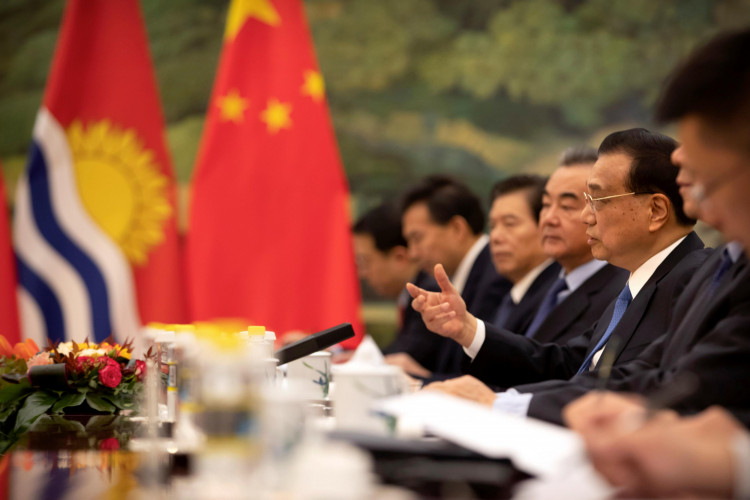Chinese Premier Li Keqiang on Wednesday vowed to initiate serious efforts to trim down taxes and minimize government spending as part of the country's latest fiscal strategies this year.
Li, speaking during the State Council meeting, pledge greater strides to boost market projections and maintain economic indicators in a more realistic level.
Investors, business executives and economists shared their vision and expertise in the state council gathering important details of which will be documented on China's Government Work Report set for release in March.
The Premier said this year China will face an even more complicated and demanding domestic and international climate, and more focused policies and steps need to be taken to tackle the challenges.
To ensure that systemic tax cuts can be fully implemented and the basic public welfare can be assured, the government must further tighten its belt and reduce its usual spending, particularly administrative expenditures, by a great margin.
He stressed the importance of retaining relatively adequate liquidity during the implementation of a prudent monetary policy, with stronger measures to improve its transmission mechanism so as to effectively mitigate the funding difficulties faced by small and medium-sized enterprises.
The government will continue with a jobs-oriented agenda and will prioritize efforts to expand employment-creation platforms and promote flexible work, Li said.
The government needs to reduce its direct market interference to provide a more supportive atmosphere for business operations and generate more industries, Li emphasized, stating that market players have an important part to play in resisting downward economic pressures.
Li also underlined the importance of further leveraging the potential of domestic consumption and playing into the power of China's rapidly evolving financial landscape.
He encouraged concerted efforts to develop community services such as elderly care and day care for children, and to strengthen weak areas of infrastructure and urban infrastructure.
It is also important to move forward with the renovation of old residential communities, he said, in order to expand China's aggressive push for stronger investments and leverage the country's growth momentum.
Among those who were present in the conference were Gao Peiyong, vice-president of the Chinese Academy of Social Sciences, and Lei Jun, founder and chief executive officer of Xiaomi Corp.
Gao called on the government to make its spending cuts part of its institutional structure, while Lei urged the authorities to step up initiatives to entice foreign professionals and even investors to move and work in China.





